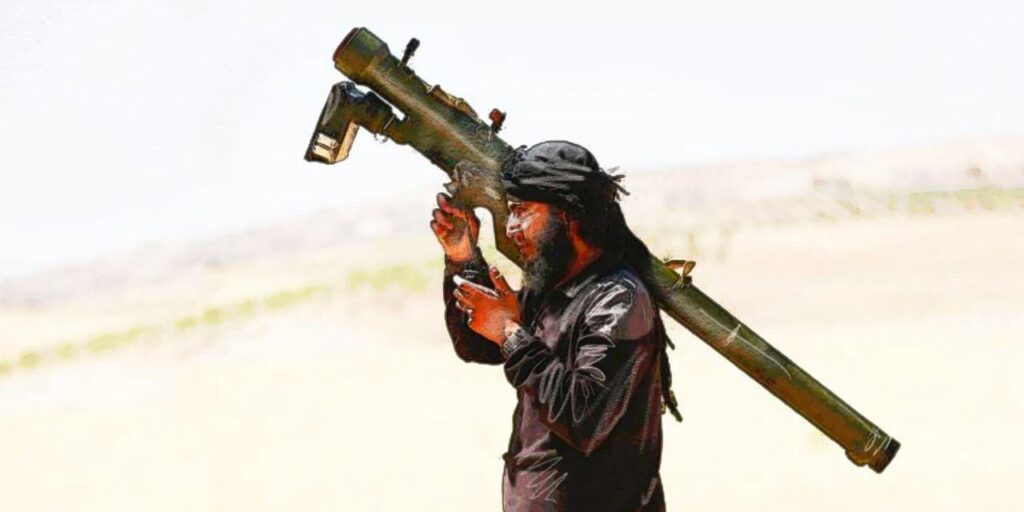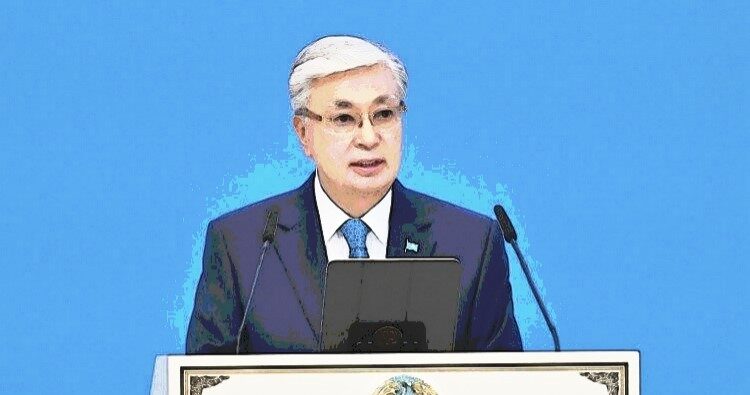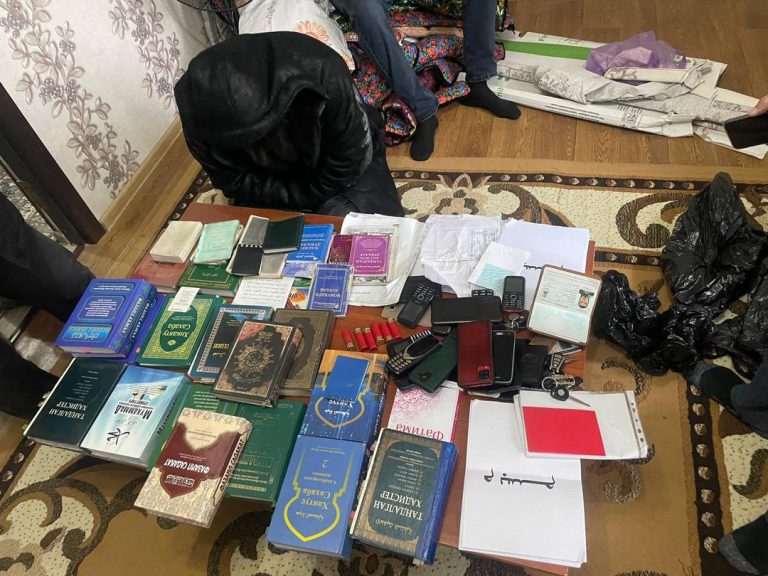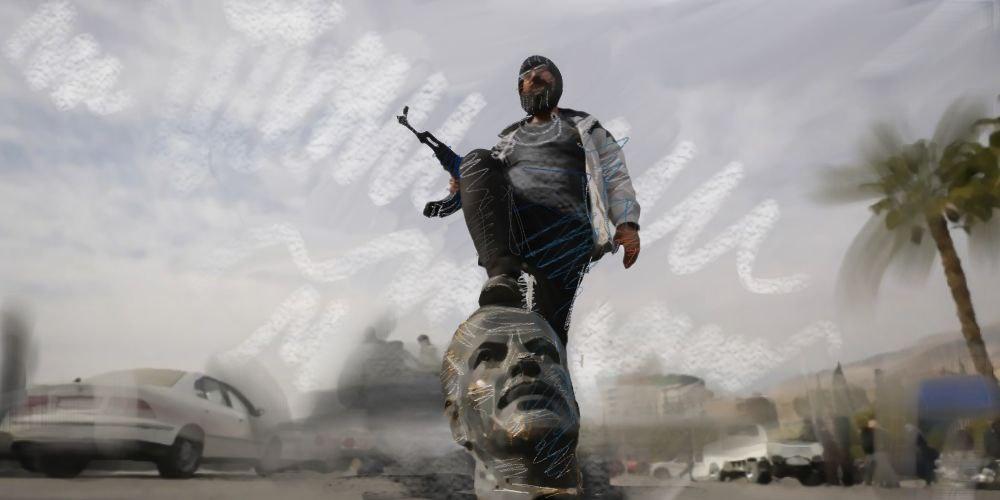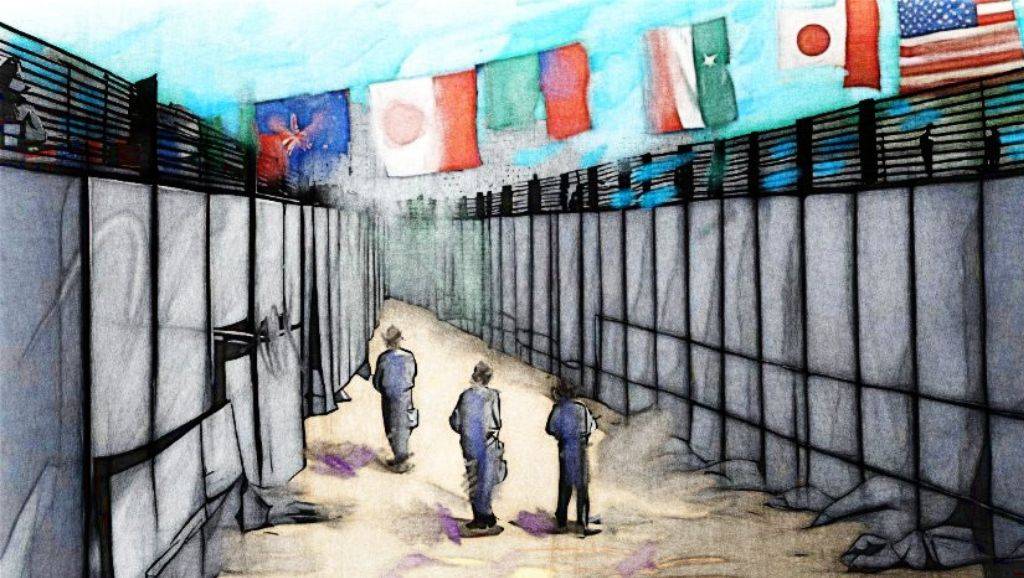There appears to be a small, but growing problem with terrorism and extremism in Kazakhstan.
More than 30 people from regions around the country have been detained in Kazakhstan so far in 2024, and in March, Russia’s Federal Security Service (FSB) killed two Kazakh citizens who were in Russia, allegedly to carry out a terrorist attack.
In response, the country’s Committee for National Security (KNB) had conducted dozens of raids. Kazakhstan’s government gave the KNB additional powers to monitor the internet, and authorities are tightening the law on religion.
Kazakhstan’s southern neighbors, Tajikistan, Turkmenistan, and Uzbekistan, border Afghanistan. Tajikistan and Uzbekistan have had problems with the Taliban and other militant groups during the last 25 years. These include domestic terrorist groups, the Islamic Movement of Uzbekistan and the Tajik-led Jamaat Ansarullah, both of which have been based in northern Afghanistan.
Kazakhstan has largely avoided problems with Islamic radicals.
Citizens from all the Central Asian states have gone to Afghanistan and Middle Eastern countries to join jihadist groups, including a small number of Kazakh citizens.
Turkey extradited a 22-year-old Kazakh citizen back to Kazakhstan on January 27, 2024. The Kazakh national, according to the KNB, was a “native of the Turkestan region [who] went to Syria in 2020, where he joined one of the armed groups operating there.”
The Islamic State of Iraq and Syria (ISIS) released a propaganda video in November 2014 that showed Kazakh nationals, including children, in a training camp in Syria. The video described them as “some of our newest brothers from the land of Kazakhstan.”
A group of some 25 men whom authorities said were Islamic militants staged attacks in the northwestern Kazakh city of Aktobe, near the Russian border in early June 2016. The group robbed two stores that sold hunting rifles and were involved in shoot-outs with the police and soldiers. At least 25 people were killed, most of them the attackers.
Deputies in Kazakhstan’s Mazhilis, the lower house of parliament, voiced concerns in October 2023 that radical forms of Islam were spreading in Kazakhstan. Controversial MP Yermurat Bapi said followers of these radical Islamic groups were taking over bazaars in the Atyrau, Aktobe, Mangystau, Ulytau, and Almaty provinces.
Bapi and 13 other deputies called on the government and KNB to take measures against these groups and stem extremist and terrorist propaganda from being disseminated inside Kazakhstan.
On February 17, 2024, the KNB staged a combined 49 raids on eight unspecified religious extremist groups in the Aktobe, Atyrau, East Kazakhstan, Zhambyl, West Kazakhstan, Turkestan, and Zhetysu provinces. The KNB said it detained 23 people and seized weapons, ammunition, religious literature, narcotics, and cash.
On April 1, 2024, the KNB detained a man in the Caspian coastal city of Aktau and found material for making explosives. According to the KNB, the suspect was a follower of a “radical religious ideology,” and was planning to carry out a terrorist attack.”
At the start of July, five people were detained in KNB raids in the Atyrau and Zhambyl provinces, and in the capital, Astana, and southern city of Shymkent. The five, one of whom was a “foreigner,” were suspected of “participation in terrorist activities, promoting terrorism, organizing extremist activities, and recruiting people for these purposes.”
The KNB has also been targeting recruitment over the internet. A Shymkent resident was convicted on May 6 of sharing ISIS videos on TikTok and sentenced to seven years in prison.
The day before that conviction, the KNB detained three people in Astana and the northeastern city of Pavlodar on suspicion of disseminating terrorism propaganda and participating in the activities of a banned religious extremist organization.
Most disturbing was the incident involving Kazakh citizens Sabit Ashiraliyev, 35, and Zhanibek Taskulov, 38. Both were from the Saryagash district some 100 kilometers from Shymkent, both were married with children.
On February 28, the two men flew to Russia and went to village of Koryakovo, in Russia’s Kaluzhsky Oblast. The FSB raided the flat where Ashiraliyev and Taskulov were staying on March 7 and killed them both after, according to the FSB, they offered resistance to being apprehended.
According to the FSB, the Kazakh nationals were members of the “Khorasan Willayat,” also known as the Islamic State of Khorasan Province (ISKP), a splinter group of ISIS that is based in Afghanistan but has expanded its operations to other countries.
The FSB said Ashiraliyev and Taskulov planned to attack a synagogue.
Om March 22, barely two weeks after the Kazakh citizens were killed, terrorists attacked the Crocus City Hall in Moscow, killing more than 140 people. ISKP claimed responsibility for that attack.
Mazhilis Deputy and member of the parliamentary Committee for International Affairs, Defense and Security, Konstantin Avershin, said at end of March that ”it is impossible to exclude that there are (ISKP) sleeper cells… on the territory of Kazakhstan.”
At the end of May, KNB chief Yermek Sagimbayev met with President Kassym-Jomart Tokayev and said since the start of 2024, 26 people have been convicted of involvement in terrorism or extremism, and 22 more were awaiting trial.
Shortly after Ashiraliyev and Taskulov were killed, the Kazakh government gave the KNB additional powers, among them the right to “use information systems and electronic information resources” for monitoring the internet and “protection of information systems.”
After MPs called for action in October 2023, then-Kazakh Prime Minister Alikhan Smailov said in November that amendments to the law on religion were being prepared that would introduce the “concepts of ‘destructive religious trends’ and ‘religious radicalism’” and impose severe punishments for those found guilty of subscribing to them.
The proposed amendments are still under discussion.
The numbers of people apprehended and convicted in Kazakhstan this year for involvement in terrorist or extremist groups is not large, but it is more than has been seen in previous years, and they’ve been caught in areas all over the country.
It seems clear that the problem is growing, and now it falls to the Kazakh authorities to effectively neutralize this challenge without taking such severe measures that the government ends up alienating people and driving them into the groups the state is seeking to eliminate.

